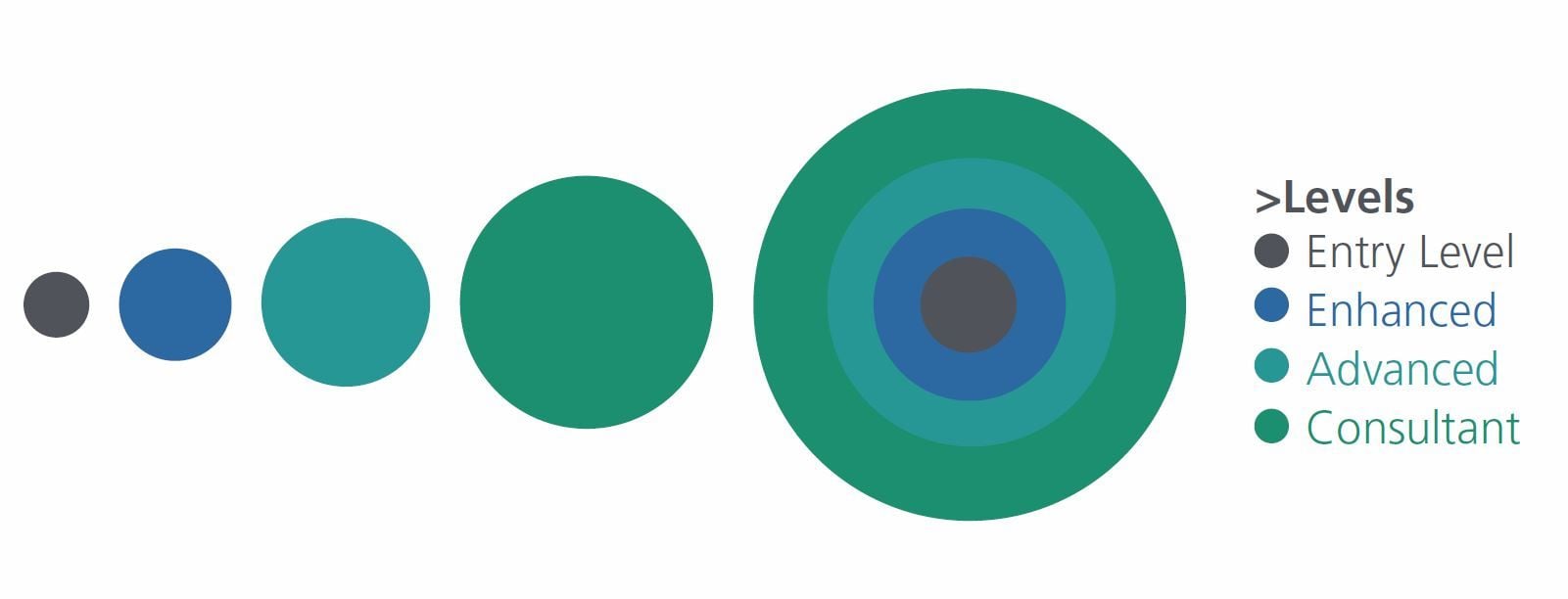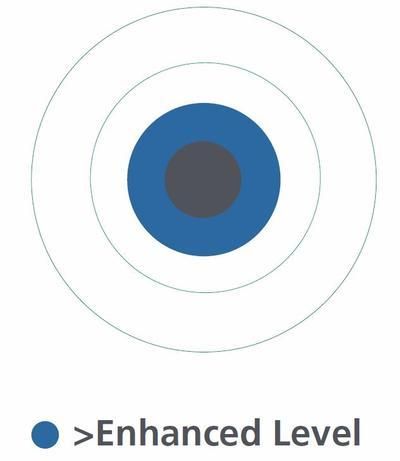NHD STUDENT BLOG SERIES

Dietetic levels of practice

Siân is now working with the British Dietetic Association as Professional Practice Manager. She previously worked as an Assistant Professor at the University of Nottingham. She has worked in a range of clinical areas, specialising in learning disabilities, palliative care and nutritional support.
Twitter@: siancunningham2
Siân Cunningham, MSc, RD, AFHEA
Professional Practice Manager, BDA
Knowing what you want to do with your life is a challenge that many of us grapple with! Deciding you want to be a dietitian, undertaking the training and starting in an entry-level position as a newly qualified practitioner can see you realising your dreams of being a dietetic professional. But no sooner have you achieved your dream and started in your first post and you're faced with the next decision: deciding where you might want your career to take you and when is the right time to seek promotion.
First things first...
It can be helpful to understand what we mean by the different levels of practice. The British Dietetic Association (BDA) has developed the Post-Registration Professional Development Framework (2021), which helpfully summarises each of the levels of dietetic practice. This framework is now due to be updated, so watch this space for the launch in 2025! Currently, there are four levels to the framework: Entry level, Enhanced, Advanced and Consultant.

Levels explained... (1)

Entry Level: Here we enter the profession and start working towards the entry level capabilities. We develop competency through practice during the early post-registration years.
Enhanced Level: Dietitians are specialists at this level of practice.
Advanced Level: At this level, dietitians have an authoritative knowledge of their area of practice and associated disciplines. They will be working at master's level where there is an absence of full information. The dietitian will make sound judgements.
Consultant Level: The consultant dietitian is recognised as a national and international leader in their field to the profession by ietitians and other healthcare professions.
You will also hear people talking about the four pillars of practice...
The four pillars are:
- Practice
- Evidence-based practice research
- Facilitated learning
- Leadership.
You will be demonstrating skills in each of these areas whichever level you are working at! By Advanced Level, you are able to show that you are working at master's level (Level 7) in all four pillars.(1)
It is important to understand that you don’t have to move through all the levels of practice. The majority of the dietetic workforce sits at the Enhanced Level. Which level dietitians are working at can be due to personal choice, opportunities for progression and service needs. Many dietitians find working as a specialist dietitian at Enhanced Level is a highly rewarding and fulfilling career!
The framework helps you to understand how we work depending on the level of practice we are at. each level in the framework outlines the capability (the knowledge, skills and abilities) that would be expected to be demonstrated at that level.
As you would expect, each level builds on the previous one by adding in extra skills, ability, and knowledge, this allows you to tackle ever more complex situations with greater expertise and independence.
The BDA advises that each competency level is expected to take around 18-24 months in post to achieve but this will vary depending on the individual, with some achieving competency sooner and some needing more time.
It can be helpful to benchmark yourself against the framework to help you determine your level of practice and to identify areas you could focus on in your continuing professional development (CPD).


Thinking about promotion
There are lots of opportunities for progression within dietetics and in the current climate, you may find that a post at Enhanced Level comes up sooner than you might expect. It’s important that you are well supported in moving from Entry to Enhanced Level. Having regular supervision and support to complete competencies in your area of specialism will ensure that you work within your scope of dietetic practice, keep patients safe,and that you enjoy and thrive in your career!.
References
-
The BDA Post-Registration Professional Development Framework (2021). Available at: https://www.bda.uk.com/static/f1727d3a-8e42-4e6e-9f06b3daa9f3a196/Post-Registration-Professional-Development-Framework [accessed 19th June 2024]
